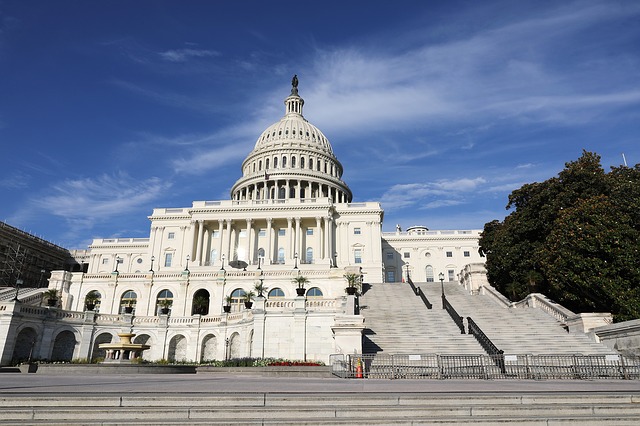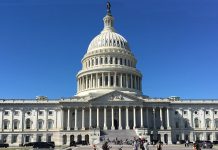Early this morning, the U.S. Senate approved a $1.3 trillion omnibus spending bill (H.R. 1625). The legislation provides funding for the federal government through Sept. 30. The U.S. House passed a similar version on Thursday. President Trump signed the bill today to avoid a government shutdown.
The legislation directs $700 billion toward the military and $591 billion to domestic agencies. Military spending is $66 billion more than the 2017 level, and the nondefense spending is $52 billion more than last year.
Republican leaders failed to include a proposal by Sens. Susan Collins (R-Maine) and Lamar Alexander (R-Tenn.), that was designed to add stability to the Affordable Care Act insurance markets and lower insurance premiums. The stabilization language would have reinstated the cost-sharing reduction payments, which is how the government reimburses insurance companies that give the lowest-income customers a break on their copayments and deductibles. The amendment was supported by Sen. Mike Rounds (R-SD).
Under the final bill, HHS will receive $88.1 billion in FY 2018, a $10.1 billion increase from FY 2017. HHS’ budget will allocate:
- $8.3 billion for Center for Disease Control & Prevention (CDC), a $1.1 billion bump from FY 2017, including $1.45 billion for CDC programs to respond to bioterror attacks or pandemic disease outbreaks, $480 million for the construction of a new high-security lab, and $335 million for CDC’s workplace safety office;
- $5 billion for the Substance Abuse and Mental Health Administration, a $1.3 billion bump from FY 2017, including $1.7 billion to reduce opioid misuse and $70 million for drug courts;
- $7 billion for the Health Resources and Services Administration, a $550 million bump from FY 2017 levels;
- $4 billion for Center for Medicare & Medicaid Services;
- $334 million for the Agency for Healthcare Research and Quality, a change from previous measures that sought to fold the agency into NIH; and
- $130 million for the Rural Communities Opioid Response program.
In addition, the FY 2018 spending bill will allocate:
- $81.5 billion for the Department of Veterans Affairs (VA), a $7.1 billion increase from FY 2017, including $68.8 billion for VA medical care services and an additional $2 billion for VA hospital maintenance and construction projects;
- $5.5 billion for Indian Health Service; and
- $5.1 billion for Food & Drug Administration;
- $300 million for the Cancer Moonshot initiative; and
- $25 million for abstinence education, a nearly 66 percent bump over FY 2017.
Mental health care received a 17 percent increase to $3.2 billion for research, treatment and prevention services.







